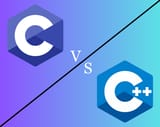Anonymous
8/9/2025, 10:02:50 PM
No.106204653
>>106204677
>>106204774
>>106204802
>>106204848
>>106204903
>>106204915
>>106205131
>>106205200
>>106205302
>>106205350
>>106205588
>>106205727
Just tried C... and wow...
Learnt it in uni when I learnt programming and then skipped to C++ and never looked back.
And yeah... I get the appeal. Made a quick 2D game with SDL.
The experience is very different from my C++ routine cause there is no "fake work".
I didn't spend hours trying to get the best and most scalable architecture, which patterns to use, figuring out if unique_ptr were the way to go or if i'd stick to shared_ptr... While still making something pretty clean cause of my experience in OOP
I was facing the algorithmic part right away, no (very little) class API design or whatever
in C++ for my personal projects I spend more time making things look nice or handy than doing real coding that matters at runtime.
is this why this language is shilled so hard on this board?
And yeah... I get the appeal. Made a quick 2D game with SDL.
The experience is very different from my C++ routine cause there is no "fake work".
I didn't spend hours trying to get the best and most scalable architecture, which patterns to use, figuring out if unique_ptr were the way to go or if i'd stick to shared_ptr... While still making something pretty clean cause of my experience in OOP
I was facing the algorithmic part right away, no (very little) class API design or whatever
in C++ for my personal projects I spend more time making things look nice or handy than doing real coding that matters at runtime.
is this why this language is shilled so hard on this board?








